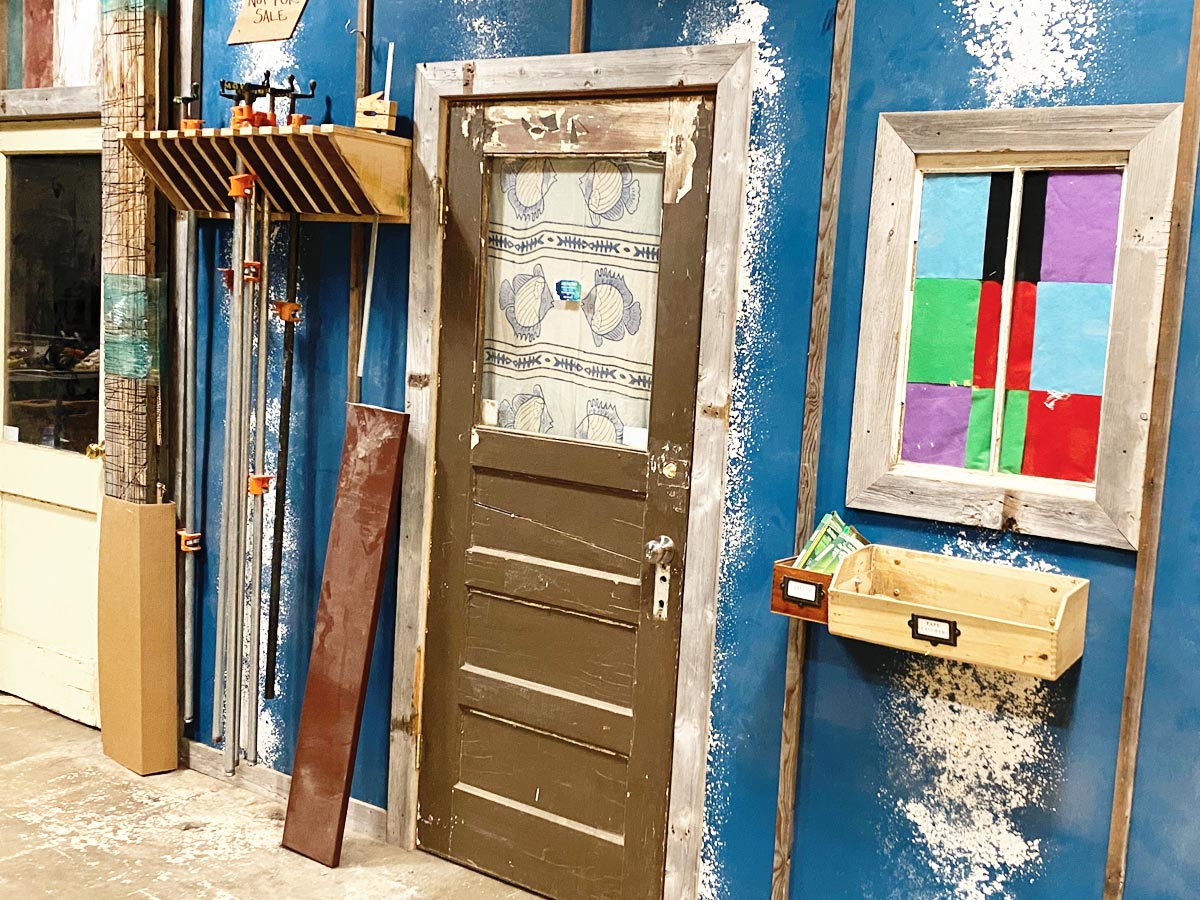By CARRIE SCOZZARRO
For a couple hundred bucks, you can pick up enough basic woodworking tools to tackle small jobs around the house, like making shelves. But if you want to make a custom bracket for those shelves? Now you’re talking a CNC router, or maybe a TIG welder if you have metal on your mind. And if the brackets you envision resemble a miniature grizzly bear—in honor of Montana’s state animal—then you’ll want to explore using a 3D printer, which can range from $300 to $3,000.
Creativity might be free, but making stuff isn’t, which may hamper many a maker from actually plunging into those projects on their to-do list. In addition to tools and equipment, there is the cost of knowledge. How do specific tools work? Which tool or technique would be best? Or more simply, how does one get started?
When you have questions, makerspaces provide answers. These hotbeds of human creativity are defined by Oxford dictionary as “a place in which people with shared interests, especially in computing or technology, can gather to work on projects while sharing ideas, equipment, and knowledge.”
Ira Sather-Olson runs the Missoula Public Library makerspace, which opened in 2013 and features fairly standard makerspace equipment: wood and metalworking, small electronics, robotics, 3D scanning and printing, and industrial sewing.
The goal of their makerspace is to encourage “self-directed learning and hands-on learning by doing,” according to their website.
“Staff may provide advice, or recommend online resources, but cannot work on your project for you,” noted Sather-Olson.
“You have to be willing to dive in and make mistakes,” advised Tom Javins, a 67-year-old mechanical engineer and former facilities director at nearby University of Montana.
Javins was familiar with makerspaces from his job—the University has one called the Innovation Factory. He investigated the library space to learn about 3D printing in order to repair a clothesline.
“My wife calls me Mr. Fixit, cuz I’ll fix anything,” said Javins, who also volunteers at the library makerspace.
He has helped kids program robots as well as assisted artist Alison Reintjes, wife of Missoula Art Museum’s director, Brandon Reintjes, in creating a scale model of her artwork.
Javins also participates in a “fixit clinic” the library hosts for Home ReSource, a community sustainability center. The idea is to have people learn how to fix their broken items by using a central location where both the tools and expert help are available.
Makerspaces needn’t be limited to a building, however. The University of Idaho Extension 4-H Youth Development and Idaho Out-of-School Network developed 16 mobile makerspaces for the state’s K-12 population. And In Montana, Flathead tribal elders joined the University of Montana and SciNation to create Kwul ‘I’tkin Maker Truck.
Both of the above mobile makerspace programs focus on activities supporting STEM—an acronym for a decades old educational push towards science, technology, engineering, and math—which is another way makerspaces might vary.
In Montana, for example, Bozeman MakerSpace offers what might be considered a typical makerspace experience, while Billings-based SCRAP (Share Create Reuse and Promote) focuses on STEAM, versus STEM—incorporating art and science in their makerspace. So does Gizmo Cda in Coeur d’Alene, Idaho, with equipment you’d find in a typical makerspace, but offering the means to do ceramics, textiles, jewelry, and lapidary.
Mondaes Makerspace & Supply in Nampa, Idaho and Idaho Art Lab in Teton are completely art-centric. The Teton space is a “do-it-yourself makerspace and fabrication lab, fine art & craft supply store, art gallery and artist residency in rural St. Anthony,” according to the organization’s website.
Makerspaces not only vary in focus, but they also vary in their target audience, which for Helena’s MOP Shop—Means of Production—is mostly adult learners.
In addition to reaching out to military veterans through a recent partnership with the Veterans Administration, MOP Shop has served as an incubator for “several cottage industries and small businesses, giving them an affordable place to start and grow until they can spread their wings,” according to founder Matt Forbes.
For a monthly fee of $50, members can access MOP Shop’s wood shop, various community tools, paint booth, lounge area, and a 500 square foot retail shop space for people to display and sell their work. Private studios are also available for rent.
They also offer classes, which had been halted because of COVID, but may resume soon, said Forbes.
That’s one of the reasons Rose Garcia Filteau joined MOP. She has availed herself of the shop’s tools to rehab vintage doors for the home she and her husband are building. A recent project involved a 100-year-old five-panel door she stripped, sanded, and stained, while another door features faux wood and even faux mercury glass.
“I am a person who loves to take old things and make them new or repurpose them,” said the 55-year-old Garcia Filteau, whose day job is as a board-certified behavioral therapist. “That’s been my vibe forever.”
Garcia Filteau is looking forward to rewiring old lights and learning how to weld, two things she did not otherwise know how to do nor have the tools to pursue before joining MOP.
“Being a hub for the sharing of skills and maker knowledge is one of our primary goals,” said Forbes.
In fact, the opportunity to learn while making things is at the core of the makerspace ethos.
“I like tinkering, I like learning things,” said Javins. “It’s the perfect spot.” MSN
Are you working on a project, or have you completed one, in a makerspace? Send us your photos, along with a brief description telling us about your project. Email [email protected], so we can share what people are doing around the state!









